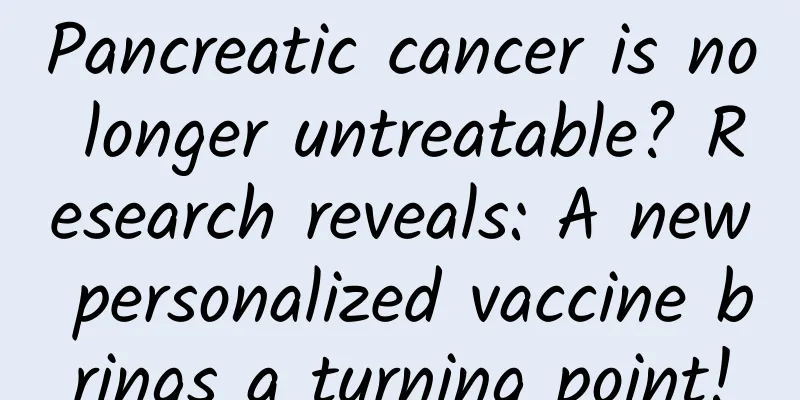What is "second positive"? Will the symptoms of "second positive" be milder than "first positive"? What is the "lethality" of the XBB series of strains?

|
After the May Day holiday, netizens in many places posted the results of antigen test "double positive". Some people in WeChat Moments and other self-media said that they had "double positive". So does a sore throat mean "positive"? What is "double positive"? Will the symptoms of "double positive" be milder than "first positive"? What is the "lethality" of the XBB series of strains? Let's take a look at these questions that everyone is most concerned about. 1. Does a sore throat mean “yang”? In addition to the new coronavirus, there are many other respiratory infectious pathogens that may cause sore throats, such as common influenza viruses, parainfluenza viruses, respiratory syncytial viruses, adenoviruses, and even enteroviruses. Therefore, a sore throat does not necessarily mean that you are positive for the new coronavirus. The best way to confirm whether you are infected with the new coronavirus is to conduct an antigen or nucleic acid test. 2. What is the difference between “double positive” and “re-positive”? "Double positive" refers to a person who is infected with the new coronavirus for the second time several months after he or she has completely recovered from the initial infection. The test result is positive again, and most of them develop symptoms such as fever. "Re-positivity" means that the symptoms of the infected person have basically disappeared, and the nucleic acid test and antigen test are negative, but the test is positive again within a short period of time (usually within a few weeks), and generally the symptoms will not reappear. 3. Will the symptoms of “second yang” be milder than those of “first yang”? For most people with normal immune function, even if they are "infected for the second time", the symptoms will be milder, and there will not be a large number of people infected in a short period of time like the first time. And the subsequent peak of the epidemic will not be as obvious as before, and may present a slower peak. 4. What is the “lethality” of the XBB series of strains? The XBB series of variants is a recombinant variant of Omicron. Its transmission and immune escape abilities are stronger than those of the Omicron variants that were prevalent in the early stage, and it has become the dominant strain in my country. Compared with the Omicron sub-branch that was prevalent in the early stage, the pathogenicity of the XBB series of variants has not changed significantly. The XBB series of strains have not caused serious epidemics in Singapore, the United States or Europe, and the number of severe illnesses and deaths caused by them is significantly lower than that of previous strains. Generally, the prognosis of diarrhea in new coronary infection is good, and residents do not need to worry too much. 5. How to prevent "double yang"? Wear a mask It is still recommended to wear a mask when going to crowded and confined places, especially when there are cases around you, or when entering key places such as hospitals. It is recommended that people keep a distance of more than 1 meter between each other in public places. Wash your hands frequently When your hands are contaminated with respiratory secretions or after contact with public facilities, you should wash your hands as soon as possible. If conditions permit, you can use hand sanitizer and wash your hands using the seven-step hand washing method. Frequent ventilation Indoor ventilation can effectively reduce the concentration of viruses in the air and reduce the risk of virus transmission, especially in crowded places such as meeting rooms, classrooms, restaurants, etc., indoor ventilation should be strengthened. Proper physical exercise You can appropriately increase physical exercise, such as walking, jogging, and Tai Chi, and persist in exercise to improve your own immunity and enhance our body's resistance to the new coronavirus. Arrange your work and rest schedule Keeping a regular schedule, going to bed early and getting up early, not staying up late, eating more fruits and vegetables, supplementing vitamins and other trace elements, and drinking more hot water can effectively protect yourself and improve your immunity. 6. What to do if “double positive” occurs? At present, the pathogenicity of the new coronavirus has decreased. Some people infected with the new coronavirus may have no clinical symptoms. Some people with mild symptoms may experience fever, dry cough, fatigue, etc. They may also experience symptoms such as nasal congestion, runny nose, sore throat, decreased or loss of smell, myalgia and diarrhea. There is no need to panic after finding "double positive". You can use symptomatic treatment drugs or go to the hospital for treatment according to your condition. It is recommended that high-risk groups such as the elderly, pregnant women, people with underlying diseases, and people with weakened immune function go to the hospital in time after secondary infection. Those who are receiving home treatment should minimize contact with others before turning negative, and try to avoid going out. If you really need to go out, it is recommended to wear an N95 or KN95 mask. 7. Which groups of people need to be vaccinated currently? (I) People who have never been infected with the new coronavirus and meet one of the following conditions: 1. Those who have never been vaccinated with the new coronavirus vaccine; 2. Those who have not completed basic immunization; 3. Those who are over 18 years old and have not completed the first or second dose of booster vaccination. (2) People who have been infected with the new coronavirus but have not completed basic immunization before infection (including children and adolescents aged 3-17 years old). According to the current requirements for the COVID-19 vaccination work, the following groups of people are the key vaccination targets: First, people aged 3-17 who have not been infected and have not completed basic immunization should complete basic immunization for the new coronavirus vaccine according to the established immunization procedures. Second, for people over 18 years old who have not been infected and have not completed the first dose of booster vaccination, the first dose of booster vaccination will be administered 3 months after completing basic vaccination. Third, people over 18 years old who have not been infected and have not completed the second dose of booster vaccination, especially those at high risk of infection, the elderly over 60 years old, people with serious underlying diseases and people with low immunity, should receive the second dose of booster vaccination 6 months after completing the first dose of booster vaccination. Fourth, people who have been infected and have not completed basic immunization can receive one dose of the new coronavirus vaccine three months after infection. Original title: Popular knowledge on prevention and control of secondary infection of COVID-19 Source | Jilin Disease Control Center |
Recommend
Why do I have frequent urination during menstruation?
Women have all kinds of problems before their per...
How to eat Cordyceps sinensis during pregnancy
Cordyceps sinensis is a very precious Chinese her...
What to do if you just got pregnant unexpectedly_What to do if a woman gets pregnant unexpectedly
Many times, babies come unexpectedly. Unexpected ...
What should I do if my cervix is not mature when the due date comes?
The process of pregnancy is particularly difficul...
Breast skin cellulite picture
When women find abnormal symptoms in their breast...
Why does it hurt when my nipples are touched?
With the increasing number of breast diseases in ...
How to lose belly fat after childbirth
There are many ways to get rid of the belly fat a...
What will happen if you drink porridge every day during pregnancy? What are the precautions for drinking porridge during pregnancy?
We all know that there are many things to pay att...
How to treat vulvar herpes?
The treatment of vulvar herpes requires understan...
How was Mars formed? How many times larger is Mars than Earth?
Mars is a planet located between the Earth and th...
A woman’s hymen undergoes three amazing changes throughout her life!
Every part of our body is a masterpiece of God, a...
Causes of false positive pregnancy test results
Many women usually have early pregnancy test stri...
What causes women to have stomach pain and blood in their stool?
Abdominal pain and bloody diarrhea seem to be two...
What does it mean when a girl has long sweat hair?
Body hair is something that everyone has, not onl...









